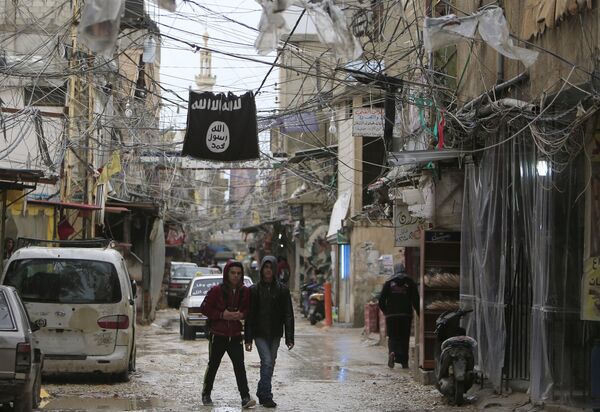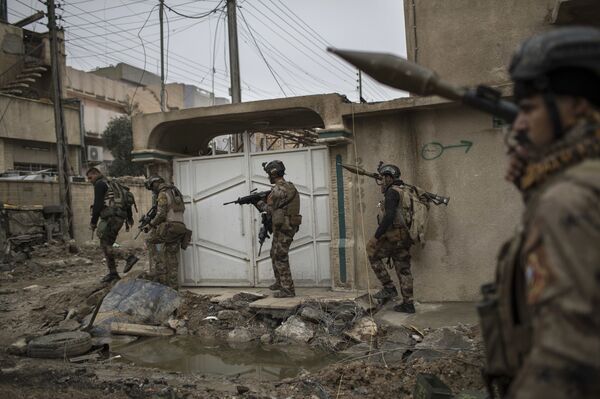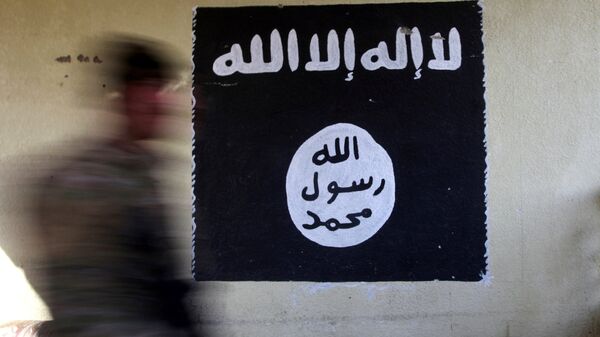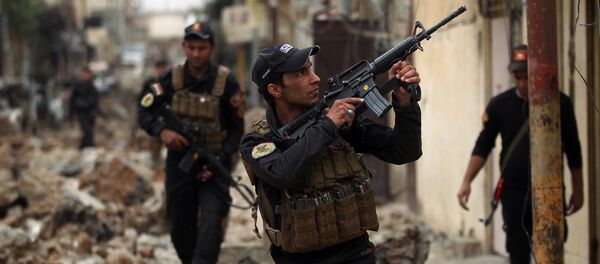Iraqi forces backed by US-led airstrikes and other support, are now battling Daesh inside the second city of Mosul, after retaking much of the other territory the militants had seized.
"Daesh controlled 40 percent of Iraqi land in 2014," Brigadier General Yahya Rasool, the spokesman of the Joint Operations Command, coordinating the anti-militant effort, said in a recent interview.
"As of March 31 [this year], they only held 6.8 percent of Iraqi territory," General Rasool added.
However experts believe that this may not be the case and reports that Daesh is losing its stronghold over Iraq and Syria may not be 100 percent accurate.
Iraqi Army: Daesh in Control of Less Than 7% of Iraq
— YemenWeek (@yemenweekcom) 12 April 2017
11/04/2017https://t.co/j2v7jvOHzG#yemenweek #Iraq #ISIL #Daesh pic.twitter.com/n8P3Juia9b
Professor Anthony Glees, director of the Center for Security and Intelligence Studies (BUCSIS) at the University of Buckingham, has confirmed that it is hard to know the truth when it comes to Daesh and how much land they currently control.
"It's hard to know what the truth is, however what seems to be the case is, we are dealing with a fluid entity and although I have seen figures suggesting Daesh has lost 40 percent in Iraq and 20 percent in Syria, I have also seen a report in the US press, stating it's only a 14 percent loss as and it has made new gains, particularly in Syria. Also Mosul, which is Iraq's second most important city after Baghdad, seems to be firmly in Daesh hands, as does Raqqa in Syria," Professor Glees told Sputnik.
Professor Glees also said that nobody is discussing the advancement that Daesh appear to making in Lebanon and that it is hard to see in the short-term how this could be prevented.
"I have seen reports saying that Daesh are making incursions into Lebanon. Its hard to see in the short term how this could be stopped. It looks good in one sense, 40 percent loss of territory in Iraq and 20 percent in Syria, but bear in mind the new incursions that have been made. For Daesh it looks like they have been able to keep the strongest powers of the world (Europe, Russia and US) at bay, and if you are looking at terrorism that allows them to recruit," Professor Glees told Sputnik.

In the long-term however, Professor Glees does believe that Daesh will not be able to survive. However, the medium-term threat for most Western governments is the fact that the terror group may open up new centers in other countries within the Middle East and this poses a huge problem. However Professor Glees is adamant that Daesh will be destroyed, when that happens is dependent on President Donald Trump.
"I think what strategic experts will say is that there is no way in which Daesh, in the long-term or medium term, can survive as a state, sooner or later, it will be destroyed and the speed at which that happens is likely to relay on US President Trump's attitude. Trump has said conflicting things on this, previously saying that he would not get involved but then he goes and makes policy changes, so we can't be sure," Professor Glees told Sputnik.

In January, Iraqi forces retook control of the eastern side of Mosul, which is divided by the Tigris River, and have since mid-February been battling militants in west Mosul. However, Daesh still controls the large towns of Hawijah and Tal Afar, as well as remote areas along the border with Syria in western Iraq.



